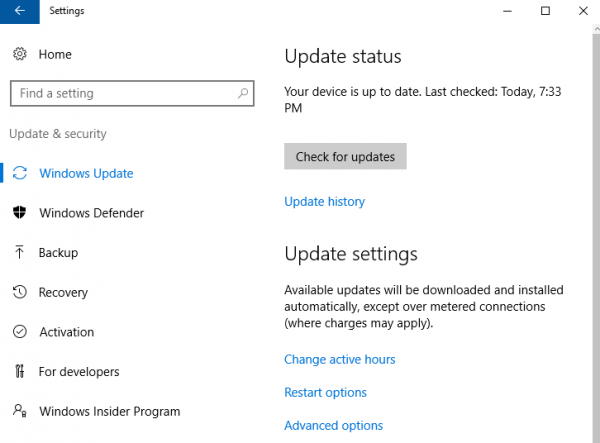
To prevent Windows 10 from automatically downloading updates that you don’t want, here are some options that you could try.
Option One: Meter your Internet connection
Option Two: Disable automatic driver updates
Option Three: Schedule restart time
Option Four: Installing updates and drivers by using Driver Easy
Please select accordingly the option that works for you.
Option One: Meter your Internet connection
Using a metered Internet connection is the easiest way to prevent Windows 10 from installing or getting the updates automatically.
If you are connecting to the Internet via wireless connection, here is how you can meter your Internet connection.
1) Follow the step: Start button > Settings > Network & Internet > Wi-Fi. On the right side of the pane, click the name of your Wi-Fi connection.
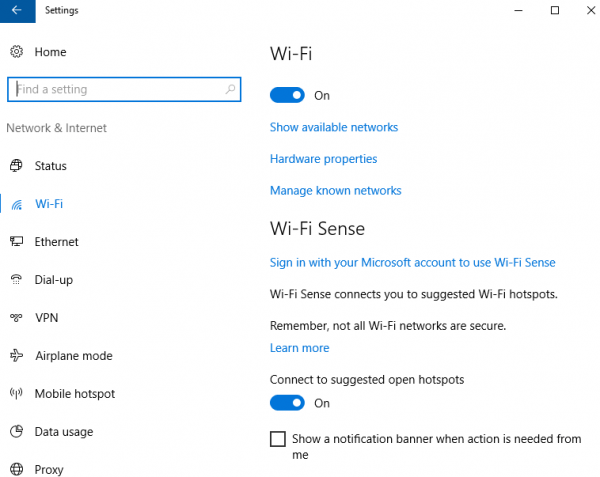
2) In the new opened window, scroll down a little bit to locate the option Set as metered connection, then set it as On.
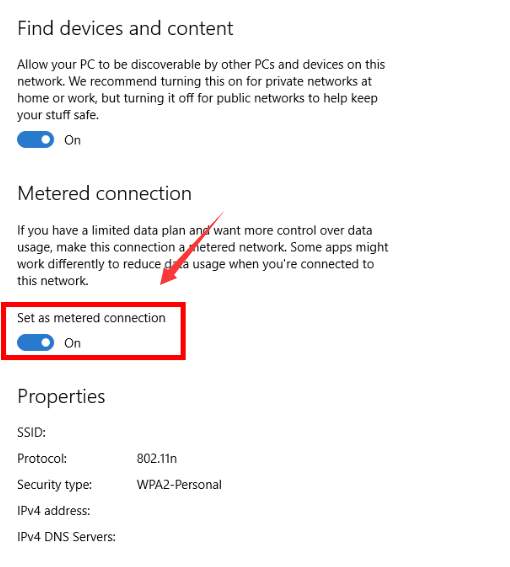
If you are connecting to the Internet via Ethernet, Windows 10 seems to assume that you have unlimited data usage. But if you want to update Windows 10 at your own pace, meaning that you manually download an update on a metered connection. Here is how you can do it.
Follow the step: Start button > Settings > Update & security > Windows Update. Then Check for updates.
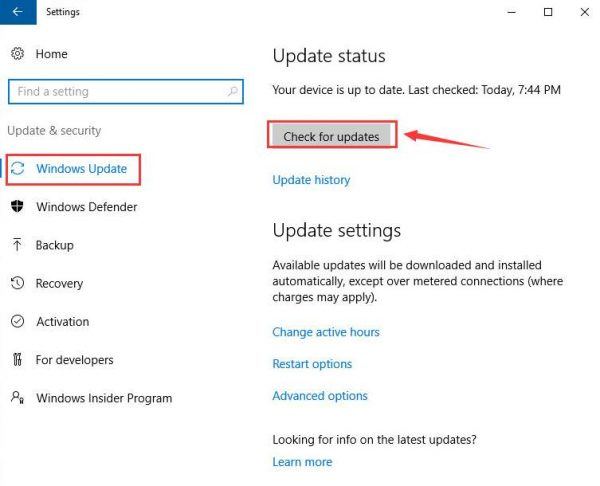
If found any, just press the Download button to get them downloaded and installed.
If you want to change the setting so that even when you are using Ethernet Windows 10 will not update automatically, you need to delve into the Registry Editor to make some changes. But messing around with your Registry could break your computer. So we do not recommend you do that here.
Option Two: Disable automatic driver updates
1) Click the Start button and then choose Control Panel (View by Small icon). Then go to System.
![]()
2) On the left pane, choose Advanced system settings.
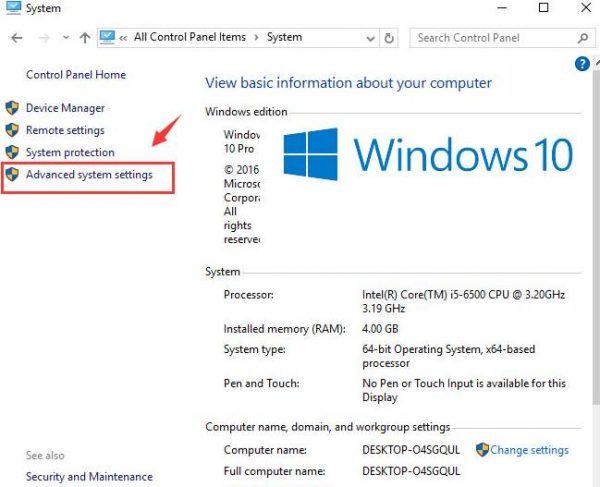
3) In the System Properties window, go to Hardware tab, then click Device Installation Settings.
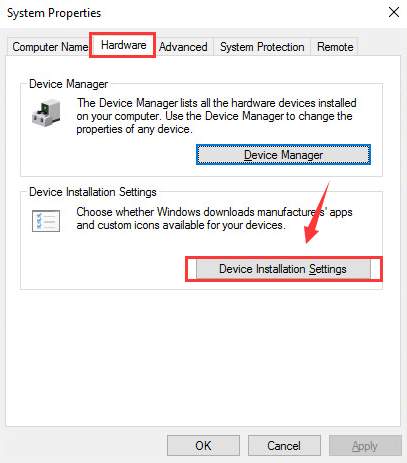
4) When prompted with the message, click No (your device might not work as expected) and click Save Changes.
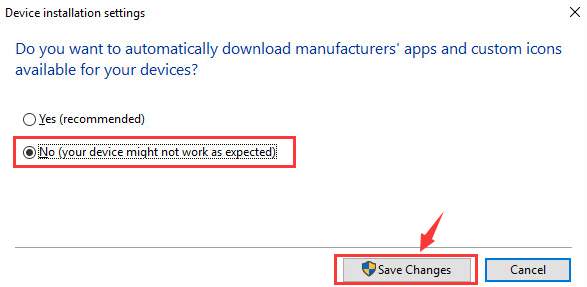
Option Three: Schedule restart time
If you don’t mind the automatic updates from Windows, but you do mind the auto restart coming along with the update, especially when you are in the middle of something. You can follow the steps below to set a 12-hour window in which your computer won’t automatically reboot.
1) Follow the path: Start button > Update & security > Windows Update. On the right side of the pane to choose Change active hours.
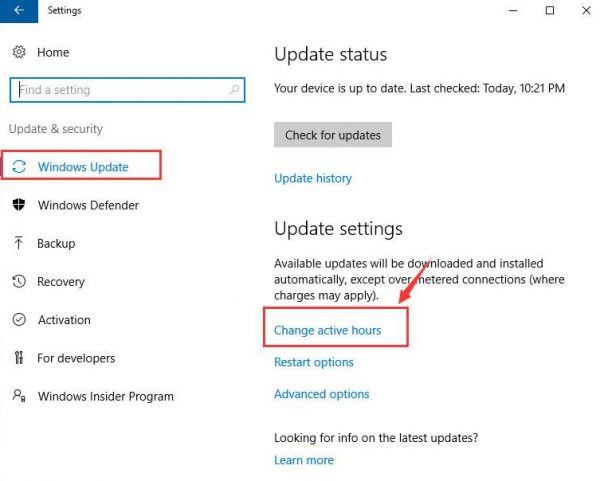
2) You can set the times you don’t want Windows to automatically update and restart. After the change, click the Save button to save the change.
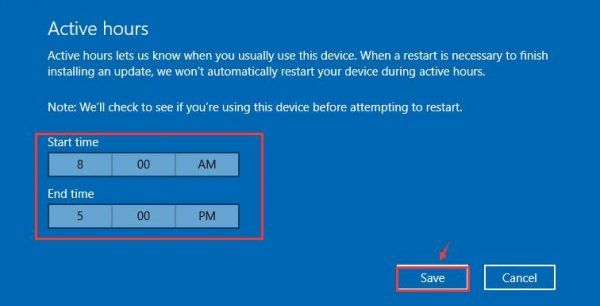
Option Four: Installing updates and drivers by using Driver Easy
Windows 10 is known to be capable to bring faulty drivers or update patches to your computer which could cause some issues, sometimes irrecoverable issues to your computer. It is suggested that you use a powerful tool that helps you shut off these sorts of problem once and for all: Driver Easy.
Driver Easy is capable of helping you detect, download and update all the missing and outdated drivers for your computer. Above all, it is a very easy-to-use program. First, just press the Scan Now button first to let Driver Easy detect what drivers you need.
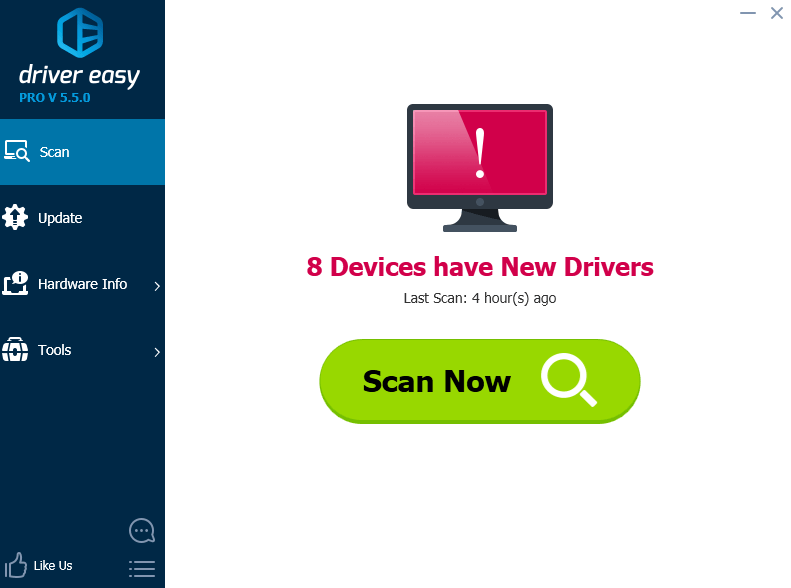
Then just press the Update button next to the driver to get it fully updated.
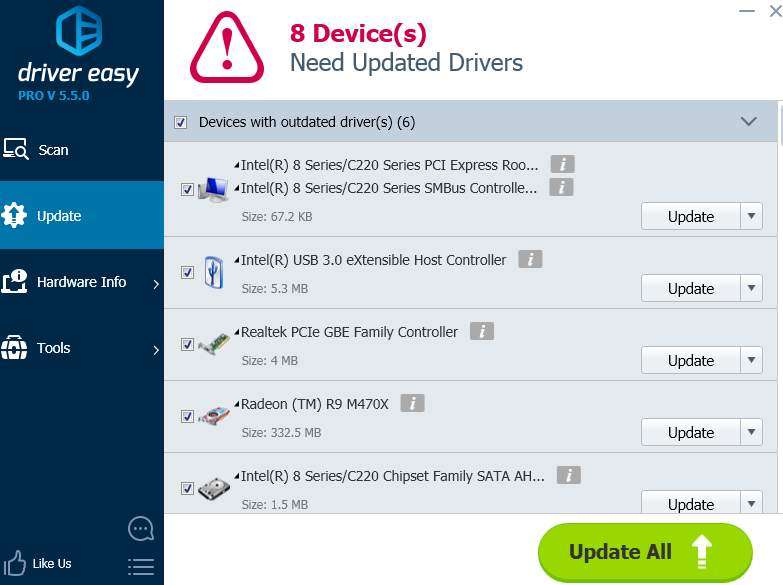
If you are looking for more features such as driver update and driver install, as well as the one-click-update-all-drivers feature, you can have a try at the professional version of Driver Easy. Plus, we provide professional tech support if you enroll the professional version of Driver Easy. If you are not satisfied with the product, you can always ask for a refund thirty days within the purchase, guaranteed.





